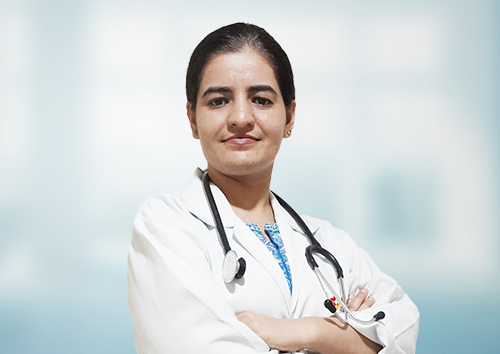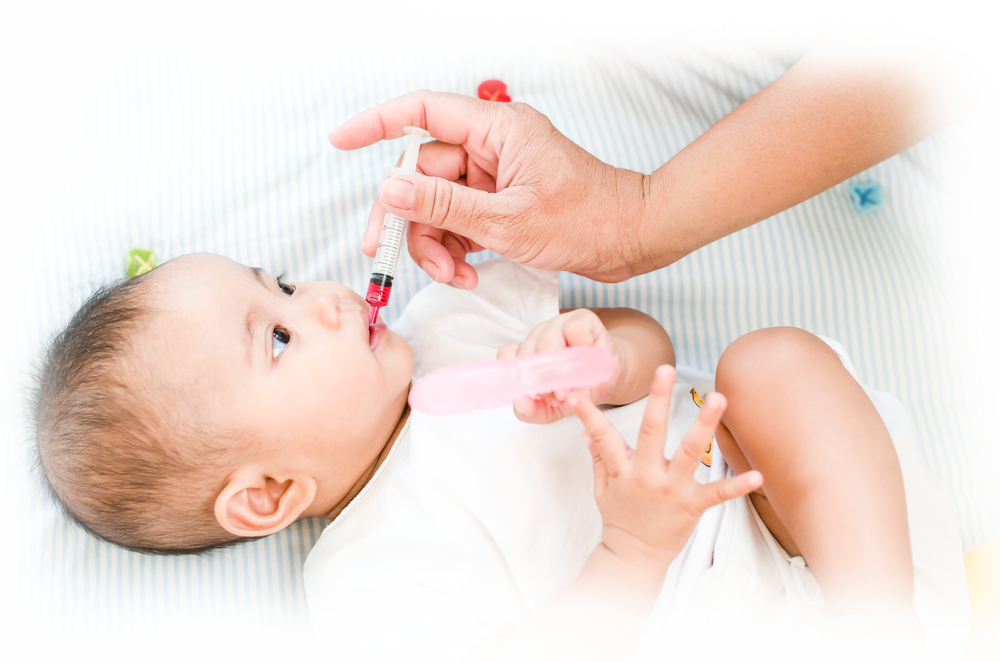
Pediatric Medicine
At SPS Hospitals, we have the best pediatricians and child specialists for the most advanced and excellent medical and surgical care for newborns, toddlers, teenagers, and adolescent children. To cater to every child’s needs, we carefully consider their conditions and design personalised treatment plans accordingly. SPS Hospitals is a pioneer in treating several pediatric condition including neonatal emergencies, pediatric critical care, pediatric cardiac emergencies, pediatric neurology, pediatric surgeries.
The branch of medicine that deals with the health and medical care of babies, children, and teenagers, ranging from birth to the age of eighteen is called pediatrics or pediatric medicine. There are several subspecialties in pediatrics including critical care medicine, neonatal medicine, endocrinology, pediatric cardiology, haematology, pediatric surgery, and neurology.
With a team of highly qualified and experienced child doctors, SPS Hospitals is well-equipped for the treatment of a wide range of conditions and diseases including congenital conditions in kids of all ages.

Facilities at SPS Hospitals
At SPS Hospitals, our priority is to offer a child-friendly environment to make our little patients feel comfortable while they receive their treatments. We have cutting-edge technology, state-of-the-art infrastructure, and the most advanced medical instruments at SPS Hospitals to offer the most efficient patient care. The Paediatric Medicine department at SPS Hospitals provides excellent treatments in several paediatric subspecialties including neonatology, orthopaedics, endocrinology, cardiology, cardiac surgery, gastroenterology, haematology, nephrology, neurology, emergency & critical care, and adolescent care.
SPS Hospitals are spread across an area of 3,50,000 square feet and 9 levels. There are 280 beds in the hospital, of which 100 are intensive care beds. We also have a Neonatal Intensive Care Unit (NICU) and Paediatric Intensive Care Unit (PICU) which are equipped with the latest equipment and are monitored by the best paediatric doctors.
Treatment Offered
At SPS Hospitals, our priority is to offer the best medical services to our patients and our team of child doctors and pediatricians. Our pediatricians have years of experience and have managed several conditions like:
- Neonatal RDS
- Meconium aspiration syndrome
- Pediatric Meningitis
- Dehydration
- Sepsis
- Shock
- Liver Failure
- Kidney Failure
- Heart Failure
Surgical Cases like Laparoscopic surgeries, Neonatal abdominal surgeries, Tracheoesophageal fistula, Neonatal and Pediatric Cardiac Surgeries.
OPD Services for children with Epilepsy, Cerebral palsy, Growth failure, Congenital heart disease, Renal diseases.
Procedures Performed at SPS Hospitals
For the treatment of different conditions, different procedures are performed at SPS Hospitals. These include –
- Cerebral Palsy – For the treatment of cerebral palsy, the child specialist/paediatrician and the team of doctors would give some medications such as oral muscle relaxants and muscle or nerve injections. Physical therapy, occupational therapy, speech and language therapy, and recreational therapy may also be recommended.
- Cleft lip/cleft palate – Cleft lips and palates can be detected on an ultrasound even before the child is born. Once the child is born, surgeries are performed to repair the cleft lip or palate.
- Clubfoot – Similar to a cleft lip, a clubfoot is recognized immediately after birth if present. Our best paediatrician will begin the treatment right from the first or second week after the child’s birth.
- Spina Bifida – Spina bifida can typically be diagnosed from a foetal ultrasound. Depending on the severity of the condition, different treatment options may be required. Usually, prenatal surgery is performed before the 26th week of pregnancy to repair the baby’s spinal cord.
- Tricuspid atresia – During pregnancy, tricuspid atresia can be diagnosed during an ultrasound. The treatment for tricuspid atresia involves surgeries such as atrial septostomy, pulmonary artery band placement, Fontan procedure, shunting, or Glenn operation.
- Tracheoesophageal Fistula – In this condition, a patient has a connection between the trachea and oesophagus which is treated just after birth.
- CRRT – Continuous Renal Replacement Therapy is for patients requiring dialysis.
- ECMO – It is performed for patients requiring cardiopulmonary support.
Other procedures include central line insertion, Invasive ERP Monitoring, ICP monitoring, umbilical catheterization, dialysis catheter insertion, and Bronchoscopy.
Why Choose Us?
We at SPS Hospitals strive for excellence in patient care, hygienic conditions, and clinical services with some of the best medical professionals in the world, state-of-the-art infrastructure, and top-tier technology.
Within two years of beginning operations, “SPS Hospitals” became the first hospital network in Southeast Asia to get accreditation from the Joint Commission International, USA. In addition, we have received four JCI (Joint Commission International) accreditations and NABH accreditation. Academically, we offer paediatric intensive care and neonatology fellowships for 2 candidates each year. We are also accredited for 2 post-diploma DNB seats per year.
To give the finest care possible, medical specialists from several departments collaborate at SPS Hospitals to customise patient care based on each patient’s condition and needs.
Academics
Academically, SPS Hospitals offer pediatric intensive care and neonatology fellowships with 2 candidates each yearly. We are also accredited for 2 Post diploma DNB seats per year


Dr. Navdeep Singh
Associate Director - Paediatric Cardiology

Dr. Sujata Bhatti
Associate Director - Paediatrics

Dr. Kush Kumar Luthra
Senior Consultant - Paediatric Surgery
FAQ’s
Signs and symptoms of cerebral palsy usually start showing up in infancy or during preschool years. Some of these include –
- Favouring one side of the body
- Tremors
- Stiff muscles
- Difficulty walking
- Difficulty speaking
- Intellectual disabilities
- Learning delays
- Difficulty hearing
- Seizures
The ideal time to pick out a paediatrician for your baby is before it is born. You can start looking for a paediatrician when you are 28 or 34 weeks pregnant. The paediatrician would have a better idea about their immunisation dates and your child will also feel more comfortable.
Bronchitis can be caused due to several factors such as allergies, asthma, enlargement of tonsils and adenoids, chronic sinusitis, exposure to smoke, and irritants such as fumes or dust.
Book Your Consultation Now
